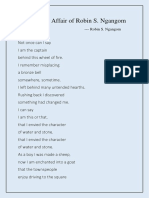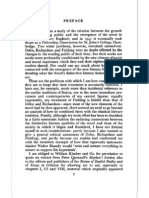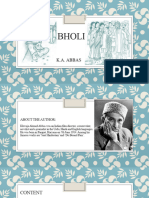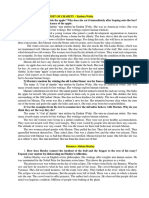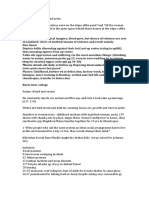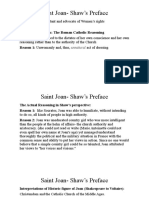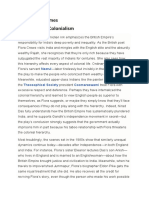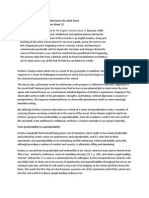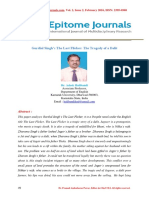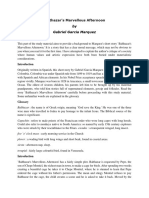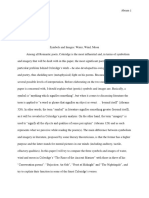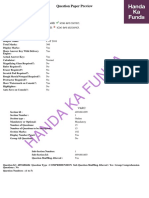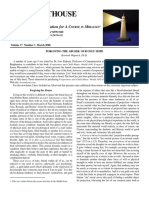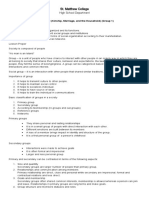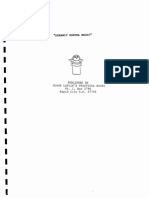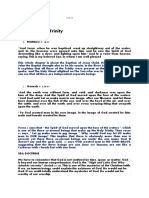0% found this document useful (0 votes)
1K views15 pagesBernard MacLaverty's "Lamb" Analysis
Bernard Maclaverty is an author from Northern Ireland known for novels like Lamb that explore the Catholic experience. Lamb tells the story of Michael Lamb, a Christian Brother who takes a fragile boy named Owen under his protection in a school for offenders. Michael begins to doubt his faith and decides to leave with Owen, hoping to give him happiness. They live as father and son in London briefly before Michael drowns Owen, seeing it as an act of mercy to save him from being sent back to the Brothers. The novel examines themes of faith, love, and the lengths people will go to protect those they care for. Catholic symbols like the sacrificial lamb are used to represent Michael and Owen's relationship and fate.
Uploaded by
Aditi VaidCopyright
© © All Rights Reserved
We take content rights seriously. If you suspect this is your content, claim it here.
Available Formats
Download as PPTX, PDF, TXT or read online on Scribd
0% found this document useful (0 votes)
1K views15 pagesBernard MacLaverty's "Lamb" Analysis
Bernard Maclaverty is an author from Northern Ireland known for novels like Lamb that explore the Catholic experience. Lamb tells the story of Michael Lamb, a Christian Brother who takes a fragile boy named Owen under his protection in a school for offenders. Michael begins to doubt his faith and decides to leave with Owen, hoping to give him happiness. They live as father and son in London briefly before Michael drowns Owen, seeing it as an act of mercy to save him from being sent back to the Brothers. The novel examines themes of faith, love, and the lengths people will go to protect those they care for. Catholic symbols like the sacrificial lamb are used to represent Michael and Owen's relationship and fate.
Uploaded by
Aditi VaidCopyright
© © All Rights Reserved
We take content rights seriously. If you suspect this is your content, claim it here.
Available Formats
Download as PPTX, PDF, TXT or read online on Scribd
/ 15




